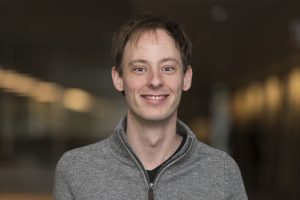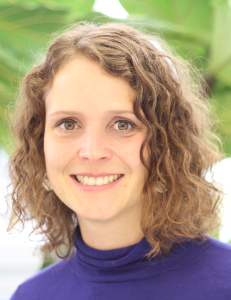Thursday, September 15, 2022, 09:15-10:00 a.m.
Keynote 1: Simulating complexity in the energy transition

Abstract: This talk is on simulating complexity in the energy transition. Mitigating the adverse effects of climate change requires us, globally, to speed up the energy transition: to decarbonise energy supply while maintaining the security of supply and the affordability of energy services. More and more of the public will have to be involved in the energy transition in the coming years: the public will be affected directly by regional and local actions, e.g., through regional energy strategies and local initiatives (e.g., energy cooperatives). Energy behaviour takes place in the context of large, socio-technical systems. These systems provide the context, e.g., by affecting which options are available, the relevant decision criteria, perceptions about technologies. And when actual decisions are made, the same energy system change. Consumers may exchange information, perceptions, opinions and respond to each other’s observed behaviour. Consequently, depending on what specific decisions are made, and when, particular patterns in emergent behaviour come about and the energy system as a whole evolves. The question is how we may be able to anticipate how such behaviour (i.e., opinions, choices and using) of larger societal groups may promote or hamper progress in the energy transition. And, at the end of the day, how to affect those processes to robustly scale up, in order to contribute to a fair, inclusive energy transition.
Modelling is a key tool to study emergent properties of energy systems and can help to systematically explore possible future trajectories, including potential effects of energy policies, on local, regional, national, or global scales. This talk focuses on agent-based models which simulate social complexity as emergent phenomena arising on the basis of modelled decision rules of individual agents. The talk shows a number of recent studies capturing energy behavior of energy consumers and energy companies, and discuss ways forward.
About the speaker
Dr.ir. Emile J. L. Chappin, systems engineer (Delft University of Technology: MSc 2006, PhD 2011) is Associate Professor at the Energy and Industry Group of the department Technology Policy and Management of Delft University of Technology, co-director of the TPM Energy Transition Lab, a senior research fellow at the Wuppertal Institute for Climate, Energy and Environment. Emile’s research focuses on the role of simulation models and games for the energy transition. Emile’s research interest is in the role of simulation modelling, in particular agent-based modelling on the domain of energy systems. In his research, Emile connects developments in modelling methodology to an understanding of complex socio-technical energy systems in order to better understand how to model, analyse and design (parts) of the energy transition. His primary interests are to unravel the possible long-term dynamics of energy systems – e.g. considering investments in power generation systems, energy behavior of companies and household – and how they are shaped by energy policies, and in contributing to the modelling methods that address important academic and societal questions in this area.
Keynote 2: From Control Loops to Control Groups: Human Behavior and the Energy Transition
Friday, September 16, 2022, 8:45-09:30 a.m.
Abstract: The increasing share of volatile renewable energies and limited storage capacity require more flexibility on the demand side and a shift away from the traditional production-follows-demand paradigm in the electric grid. As a result, demand side management (DSM) applications become more and more relevant also for the residential and mobility sector, potentially affecting millions of private individuals in their everyday lives. Yet, the future role of the consumer and the degree of automation are still unclear: On the one hand, DSM solutions with a high degree of automation (“human out of the loop”) minimize the user input required, which could facilitate participation in those schemes at population scale. On the other hand, automated approaches practically infringe consumers’ freedom and limit their influence, and many applications face fierce acceptance issues. Other DSM approaches seek to directly involve consumers in those processes or to integrate their preferences (human in/on the loop), with mixed success. This talk explores the role of human behavior in the energy transition, sheds light on consumer preferences, engagement and empowerment, and on the thin line between user convenience and intrusiveness.

About the speaker
Prof. Dr. Verena Tiefenbeck is a tenure-track professor for Digital Transformation at the Friedrich-Alexander-University Erlangen-Nürnberg, where she also leads the Bits to Energy Lab Nuremberg, a research group funded by the Bavarian State Ministry of Science and Arts. Her empirical research combines digital technologies, data analytics, and behavioral research to foster behavior change in the substainability and health context. Verena completed her Ph.D. at ETH Zurich (Chair of Information Management) in 2014 after 3.5 years spent in Boston, USA, as visiting Ph.D. student at the Massachusetts Institute of Technology and as research assistant at the Fraunhofer Center for Sustainable Energy Systems. She holds a double-degree in Mechanical Engineering and Management from TU Munich and Ecole Centrale Paris. Her work has been published in top journals like Management Science, Nature Energy, Energy Policy Global Environmental Change, Information Systems Research, and at various leading conferences.

